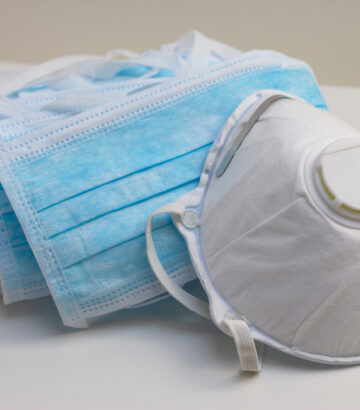Open Letter to Dr. Klibanski and the MGB Board: A Call for Urgent Action on Infection Control
December 19, 2024
President and CEO, Anne Klibanski, MD
Mass General Brigham Board of Directors
Mass General Brigham (MGB)
800 Boylston Street, Suite 1150
Boston, MA 02199
Dear Dr. Klibanski and Members of the Board,
We are writing to express our serious concerns regarding the current infection control policies at Mass General Brigham (MGB), particularly in relation to masking and other airborne pathogen prevention measures. These policies are insufficient to safeguard against the ongoing risks posed by SARS-CoV-2/COVID-19 and other airborne pathogens, which continue to cause significant morbidity and mortality. Healthcare facilities are inherently settings wherein infectious individuals congregate, necessitating appropriately robust infection control measures to protect patients and staff.
A recent study conducted within MGB, titled Testing and Masking Policies and Hospital-Onset Respiratory Viral Infections (Pak et al., JAMA Network Open, November 27, 2024;7[11]:e2448063) [1], demonstrated a 25% increase in hospital-onset respiratory viral infections following the discontinuation of universal masking and testing policies. Importantly, the reinstatement of staff masking led to a 33% reduction in these infections [2]. The universal use of N95 respirators, which provide significantly greater protection against airborne pathogens, could achieve even greater reductions and better protect both patients and healthcare workers. Additionally, the study highlighted severe outcomes, including an in-hospital mortality rate of 8% among patients who acquired respiratory infections in the hospital. These acute risks are compounded by the substantial body of evidence linking SARS-CoV-2 infections to chronic illnesses, further underscoring the need for effective prevention.
The importance of these findings is echoed by data from a separate Australian study, which found that 9.5% of hospital-acquired SARS-CoV-2 infections resulted in death [3]. Together, these studies underscore the significant risks of inadequate infection prevention measures and the opportunity for MGB to lead in adopting evidence-based practices.
We also understand that these data are not just statistics; they represent the lived experiences of many patients and staff within your facilities. Members of our organization, including those who have been treated at MGB, have shared serious concerns about the adequacy of current policies and their alignment with the science of airborne transmission. These concerns are shared by patients and families across healthcare systems. We would welcome the opportunity to engage in a direct discussion with the Board, bringing together scientific evidence and real-world experiences to address this pressing issue.
While we recognize the expertise of MGB’s infection prevention leadership, the findings of the JAMA Network Open study provide a clear and timely opportunity for the Board to lead. By aligning policies with the best available evidence and acting decisively, MGB can strengthen its reputation as a leader in healthcare safety and reaffirm its commitment to patient and staff well-being.
Given these circumstances, we urge the Board to take immediate action to:
- Establish policies requiring the universal use of respirators (e.g., N95s) for all healthcare staff and ensure adequate training for their effective use. This measure has the potential to significantly exceed the infection reductions observed in recent studies, which primarily relied on surgical masks.
- Honor patient requests for staff to wear N95 respirators as a reasonable accommodation.
- Invest in infrastructure improvements, including enhanced ventilation and air filtration systems, to achieve effective air exchanges and reduce airborne transmission risks in all areas of your facilities.
By implementing these measures, MGB can lead by example, demonstrating its dedication to evidence-based practices and patient-centered care. We look forward to your response and to an opportunity to discuss these matters in detail.
Sincerely,
World Health Network
References:
1) Pak TR, Chen T, Kanjilal S, McKenna CS, Rhee C, Klompas M. Testing and Masking Policies and Hospital-Onset Respiratory Viral Infections. JAMA Netw Open. 2024;7(11):e2448063. https://doi.org/10.1001/jamanetworkopen.2024.48063
2) Robertson, R. (2024, November 27). Want to Limit Respiratory Virus Infections? Mask and Test in Hospitals — Healthcare workers masking makes a difference, study found. MedPage Today. Retrieved from https://www.medpagetoday.com/infectiousdisease/rsv/113155
3) “Documents obtained by ABC News under Freedom of Information laws reveal at least 6,212 patients caught COVID in hospital in 24 months — 3,890 in 2022 and 2,322 in 2023. Of those, 586 died — almost six per week, on average — with men dying at a higher rate than women (11 per cent vs 8 per cent).” Gleeson, H. (2024, May 5). Hundreds of patients died after catching COVID in Victorian hospitals, new data shows. ABC News. Retrieved from https://www.abc.net.au/news/2024-05-06/hundreds-died-catching-covid-victoria-hospitals-testingmasking/
103784896
CC:
– Laura Peabody, General Counsel
– John Belknap, Chief Compliance Officer
– Zary Amirhosseini, M.Ed., Disability Program
– Debbie Burke, RN, DNP, MBA, NEA-BC, Senior Vice President for Patient Care and Chief Nurse
– Tom Sequist, MD, MPH, Chief Medical Officer
– Ron M. Walls, MD, FAAEM, FRCPC, Chief Operating Officer
– Office of Patient Advocacy
January 19, 2024
President and CEO, Anne Klibanski, MD
Mass General Brigham Board of Directors
Mass General Brigham (MGB)
800 Boylston Street, Suite 1150
Boston, MA 02199
Dear Dr. Klibanski and Members of the Board,
We are writing to follow up on our letter of December 19, 2024 expressing our serious concerns regarding the current airborne infection control policies at Mass General Brigham. We are aware of the recent updates to MGB’s masking policy. It falls short of following established science about how airborne pathogens transmit, thereby rendering it inadequate to effectively protect patients and staff.
The policy also continues to deny patients the option of the reasonable accommodation of having their providers mask or wear an N95 upon request.
We would welcome the opportunity to engage in a direct discussion with the Board, bringing together scientific evidence and real-world experiences to address this pressing issue, and we look forward to your reply.
Please contact us at teams@whn.global, Attention Infection Prevention Team.
Sincerely,
World Health Network
CC:
– Laura Peabody, General Counsel
– John Belknap, Chief Compliance Officer
– Zary Amirhosseini, M.Ed., Disability Program
– Debbie Burke, RN, DNP, MBA, NEA-BC, Senior Vice President for Patient Care and Chief Nurse
– Tom Sequist, MD, MPH, Chief Medical Officer
– Ron M. Walls, MD, FAAEM, FRCPC, Chief Operating Officer
– Office of Patient Advocacy











